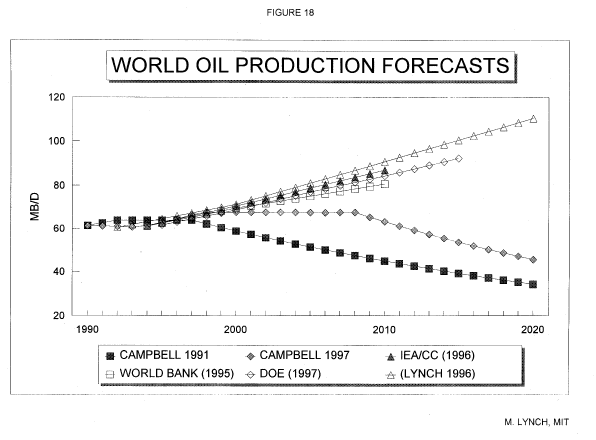JohnDenver wrote:
I think the question of OPEC reserves is still open. While the jump in Saudi reserves (for example) may appear implausible, we don't have any solid proof one way or the other. Both Campbell and Lynch are operating on faith on that point because no hard numbers are available.
my problem with lynch is the assumption that the oil is there because we can't get the data!
ie because we have looked every where else with a higher degree of transparency the oil we need must be where we are not allowed to look..
despite never having any evidence this extra discovery should exist in the first place.. it is a very odd mentality if you step back.
does a lack of data support campbell or lynch?
in the absence of any data what should the conclusion of any estimate be? I would have thought.. "until we know better here is the bell curve"
it may well be wrong but what are you going to do.. assume it will expand forever despite having a shrinking area this new eldorado could be in?
However his point about the intense development of the lower 48 not being mirrored elsewhere thus inferring we may have more slack than some doomer's predict is a good point and should be addressed..
i think it is flawed or at least nay be a flawed point.
a lot of posts on this thread are really lynch is wrong because he is a tosser...
which may or may not be true but doesn't cut it with me
Boris
London





